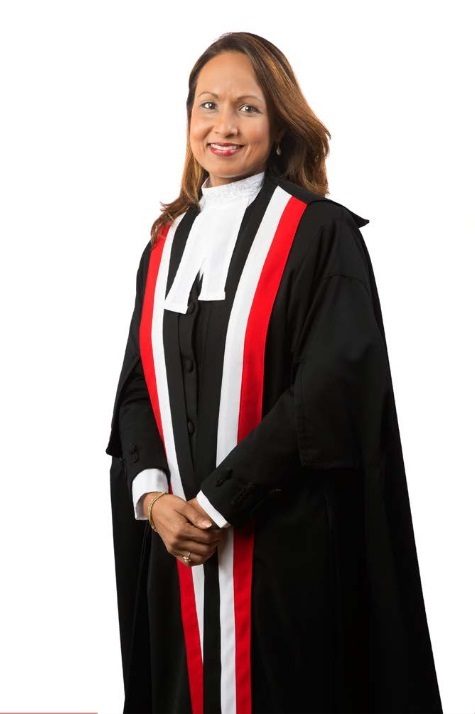Court rules prison beard policy discriminatory

A HIGH COURT judge has made a damning indictment of an internal facial hair policy of the prison service “which has the effect of discriminating against prison officers based on race.
“It is outrageous that in 2024, the commissioner is still applying the policy…This conduct cannot be condoned in a multi-ethnic and inclusive society such as Trinidad and Tobago,” said Justice Margaret Mohammed who held the clean-shaven policy affected all prison officers of African descent and mixed race.
The judge’s condemnation of the policy formed part of her ruling on a challenge brought by prison officer Lorenzo Marajh, who was denied medical exemptions for his pseudofolliculitis barbae or ingrown hairs and razor bumps.
He was also denied a medical exemption to wear a specific type of footwear because of heel spurs.
In her ruling, Mohammed said Marajh was treated differently. She has also declared the policy unconstitutional, illegal, null and void.
She said while she accepted the prison authorities were entitled to make policies to instil discipline, uniformity, tidiness and cleanliness among prison officers, there needed to be “weighty reasons” to justify a policy treating someone differently based on personal characteristics such as race.
“There was no evidence that the functions and duties performed by prison officers were hindered by facial hair.
“Given the multi-ethnic and inclusive society of Trinidad and Tobago and the respect for all ethnicities and religions in the twenty-first century, a beard can be kept while still maintaining high standards of appearance,” the judge said.
She also said in the absence of “cogent evidence,” there was no reasonable justification for treating those prison officers who can maintain a clean-shaven face without adverse consequences to health differently from other officers who cannot because of their racial and genetic composition.
“In those circumstances, I am of the view that there is a significant imbalance between the right of the claimant and other persons of African or mixed descent and the objectives of the policy, which makes it disproportionate.
“As a consequence, the policy infringes the claimant’s constitutional right to equality of treatment and protection of the law as he is being treated differently when compared to other prison officers on account of a condition that is linked to or is a byproduct of his racial origin and genetic makeup.”

She also held that Marajh’s right to protection of the law was breached because of the lack of reasonable justification for the policy. She further found that the commissioner’s failure to grant him the exceptions was “irrational, illegal and disproportionate,” since he (the commissioner) was not medically qualified to make any kind of assessment on an exemption based on medical grounds. Marajh had received 16 medical exemptions from shaving before he was denied in 2023.
“Indeed, there is also no provision in the Prison Service Act or the Prison Service Regulations (Code of Conduct) which gives the commissioner a discretion to make decisions in relation to medical exemptions.”
On his challenge on his footwear, the judge said Marajh had not worn the prison hard boots for several years as he was a clinic escort officer, so he did not need to and had received two previous exemptions.
As she held that Marajh’s case warranted an award for vindicatory damages, Mohammed said a guaranteed right under the Constitution was “an important right as it protects persons from being discriminated on the basis of their race.
“In my opinion, the facts in the instant case warrant an award for vindicatory damages.”
The quantum is to be assessed by a High Court master.
She also quashed the commissioner’s refusal to approve the exemptions while declaring that he (the commissioner) did not fairly perform his duty. She also ruled that Marajh’s legitimate expectation of necessary approval to report for duty unshaven because he had medical reasons was frustrated.
In his lawsuit, Marajh said he joined the prison service in 2009. In 2010, he began getting razor bumps and ingrown hairs when he shaved. It got worse and he was advised to get treatment from the prison medical officer, which he did.
He also visited dermatologists. In his case, he presented expert evidence from Dr Naomi Dolly, a practising dermatologist for almost a decade in TT and New York, who testified to the predisposition of pseudofolliculitis barbae in people of African descent.
He also relied on the evidence of Lester Logie of the Prison Officers’ Association, who said he received numerous complaints from other prison officers, mainly of African descent and mixed race. Logie also suffered the same condition and spoke of his experience. He also testified to the “complicated procedure” for medical exemptions.
Testifying for the prison service was prison supervisor Ramashwar Rampersad, who testified it was an unwritten policy established throughout the protective services and other paramilitary organisations to “ensure a unified look” and maintain good order, discipline and hygiene.
This policy is not limited to the prison service but also applies to all arms of the protective services, including the police service, the Coast Guard, the Defence Force and the Fire Service.
Earlier this year, Mohammed also ruled the facial hair policy discriminated against Muslim prison officers.
Marajh was represented by Anand Ramlogan, SC, Natasha Bisram, Kent Samlal, Jared Jagroo, Jayanti Lutchmedial-Ramdial and Vishaal Siewsaran. Stefan Jaikaran, Evanna Welch and Sara Muslim represented the State.

Prison Officers’ Association elated
In an immediate reaction to the court’s ruling, the Prison Officers Association described it as significant and landmark as it stops the “oppressive and unfair” clean-shaven policy.
“The association is elated with this victory, which is a first of its kind for the prison service. We rejoice for the end to injustice and discrimination.
“It is a fact that this has always been a policy in the Prison Service since colonial days, but we are pleased that the court has declared it to be discriminatory, unconstitutional and illegal.
“The judgment will have a radiating and positive effect on other arms in the protective services, which also have a clean-shaven hair policy.”
The association said the policy was a deterrent to young African and mixed-race men who wanted to join the service but could not because of their skin condition.
“This judgment is far more expansive because it has found that the policy also amounts to racial discrimination and therefore impacts the rights of a significantly larger portion of the prison officers.
“It puts an end to over half a century of racial discrimination in the prison service against officers of African and mixed-race descent.”


Comments
"Court rules prison beard policy discriminatory"